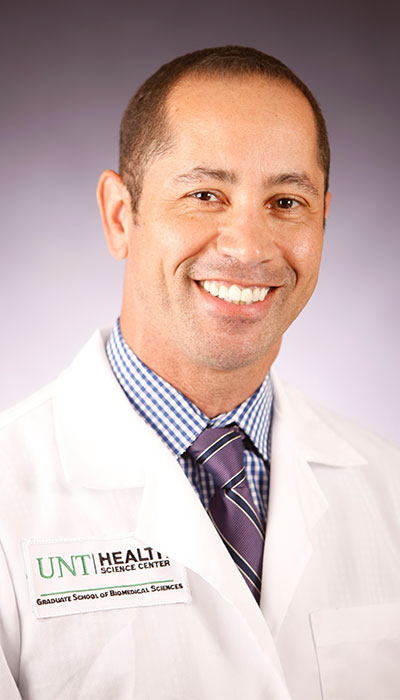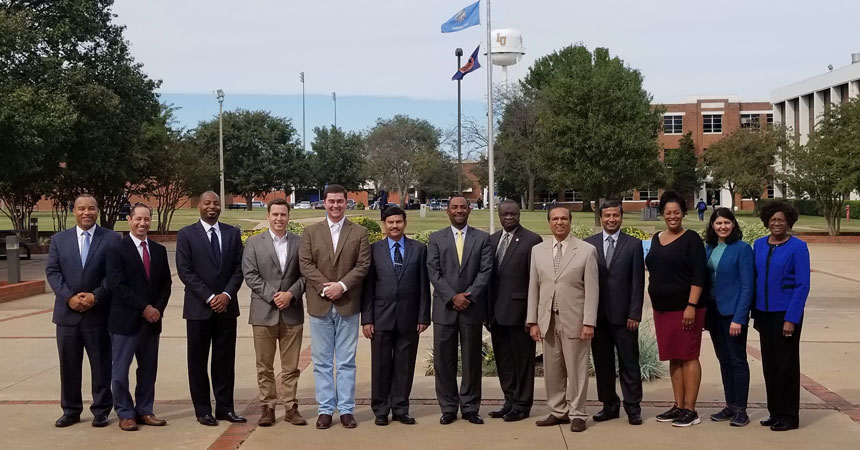UNTHSC splits $2.2 million cancer disparities grant
By Alex Branch
A new collaboration between UNT Health Science Center and Langston University seeks to reduce cancer health disparities and prepare minority scholars to perform ground-breaking medical research.
UNTHSC and Langston, a historically black college in Oklahoma, recently celebrated the awarding of a $2.2 million grant by the National Cancer Institute. The institutions will split the money, which will be paid over four years.

There are only four other similar funded projects active nationally, and those involve M.D. Anderson Cancer Center, Duke University, Lee Moffitt Cancer Center and Baylor College of Medicine.
“We are honored to be among the few institutions selected for this award that will allow our cancer researchers to greatly support cancer education and research at Langston University,” said Jamboor Vishwanatha, PhD, Project Director for the Texas Center for Health Disparities. “Through this partnership, we will share increased knowledge and awareness of the cancer needs in underserved communities and contribute to the fight against cancer and cancer disparities.”
Cancer health disparities are high in Texas and Oklahoma. Health care access, socioeconomics, culture, environment and shifting demographics are all factors contributing to disparities. Meanwhile, there is a shortage of minorities with PhDs in the workforce.
The partnership provides valuable mentorship and networking by matching Langston students with UNTHSC researchers. About 40 Langston students will gain experience in research laboratories on the UNTHSC campus during the life of the grant.
The partnership includes two collaborative research projects. One project is intended to create innovative approaches to increase the immune system’s ability to prevent lung cancer metastases. The other project targets a cell surface expression to prevent prostate cancer bone metastases.
Research will occur at both campuses, said Harlan Jones, PhD, Director of the UNHSC Center for Diversity and International Programs. Langston was previously able to improve its research infrastructure through a NASA grant that it also shared with UNTHSC.
The institutions are long-time partners with a history of success, Dr. Jones said.
“This is a true partnership,” Dr. Jones said. “We have many faculty performing innovative cancer research at UNT Health Science Center, and we are excited to collaborate once again with Langston University.”





Social media